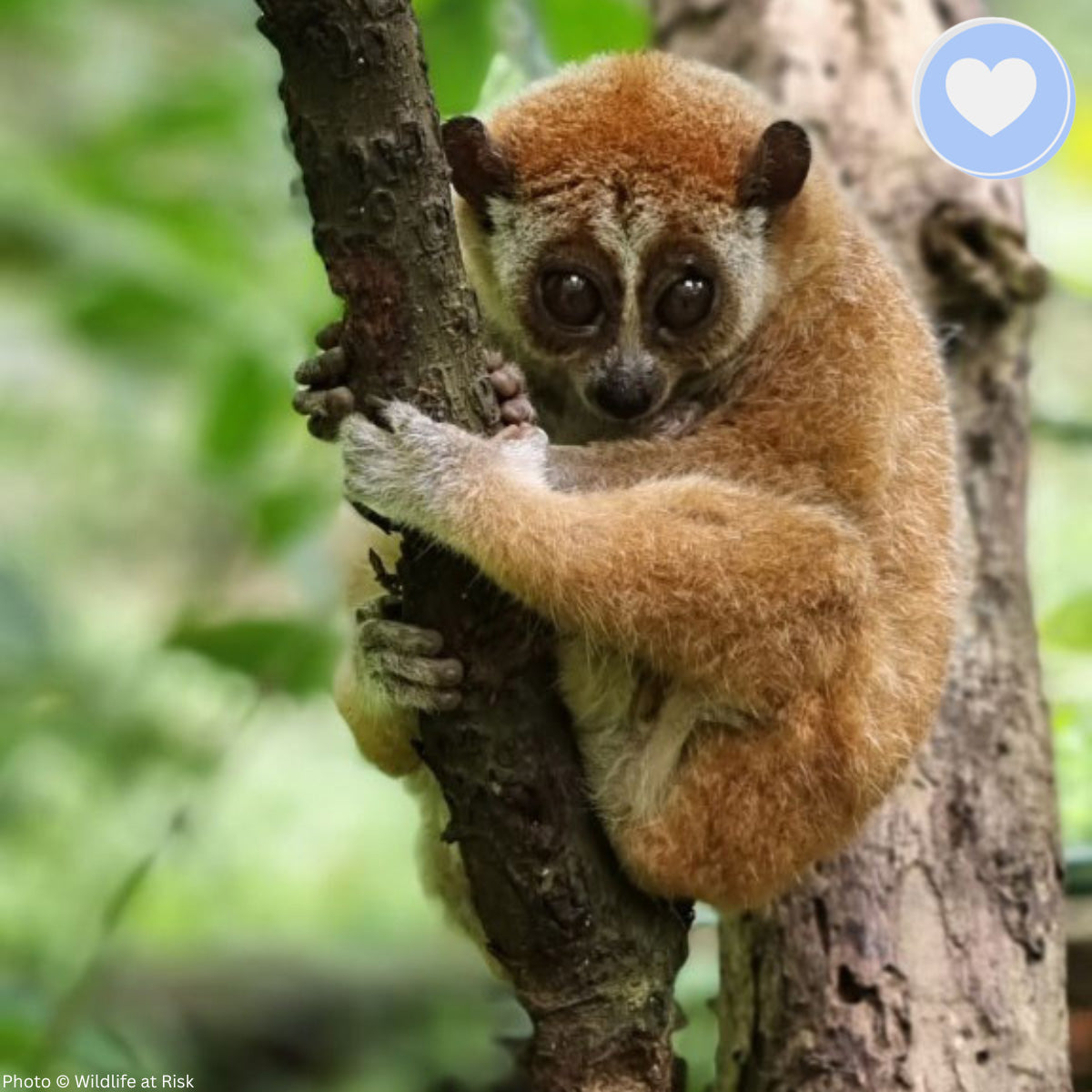Project Peril: Protect the Pygmy Slow Loris from Critical Habitat Loss
Help save the pygmy slow loris from extinction!
Did you know the pygmy slow loris has two tongues? The bottom tongue is for cleaning its teeth, while the top tongue slurps nectar from flowers. Found in the rainforests of southeast Asia, the adorable pygmy slow loris spends a lot of time eating sap and hanging in trees. Unfortunately, the trees it calls home are rapidly disappearing, and the pygmy slow loris is now a vulnerable species. If we don’t act NOW, we could lose these little tree-dwellers forever.
Defoliating, burning, and clearing of forests in Vietnam has left this species vulnerable with nowhere to call home. Pygmy slow lorises are also often poached in the wild and sold as pets, souvenirs for tourists, and for traditional medicine.
Further research into the pygmy slow loris’s population size and habitat viability is still needed, and Greater Good Charities’ Global Discovery Expeditions program is dedicated to exploring, studying, and protecting key biodiversity hotspots. That’s why this June, they’re headed to Vietnam.
With over 50,000 species of plants and animals calling Vietnam home, the country is one of the 16 most biodiverse places in the world. To help save the many endangered species in the region, Greater Good Charities is sending their Global Discovery Expeditions program to Vietnam to study key ecosystems at the Sao La Nature Reserve. With the help of your donations, American and Vietnamese scientists will study the flora and fauna of the region to help propel conservation efforts.
We need your donations to make this possible. Your donation can help save the richly diverse habitats of Vietnam and endangered species like the pygmy slow loris!
Greater Good Charities has ultimate authority and discretion with regard to the distribution of its funds. All expenditures made are consistent with the exempt purposes of Greater Good Charities.
About Global Discovery Expeditions:
Global Discovery Expeditions is a program of Greater Good Charities, dedicated to exploring, studying, and protecting key biodiversity hotspots facing imminent threat and loss by providing the initial key step in conservation – the observation and recording of living species within an ecosystem.















